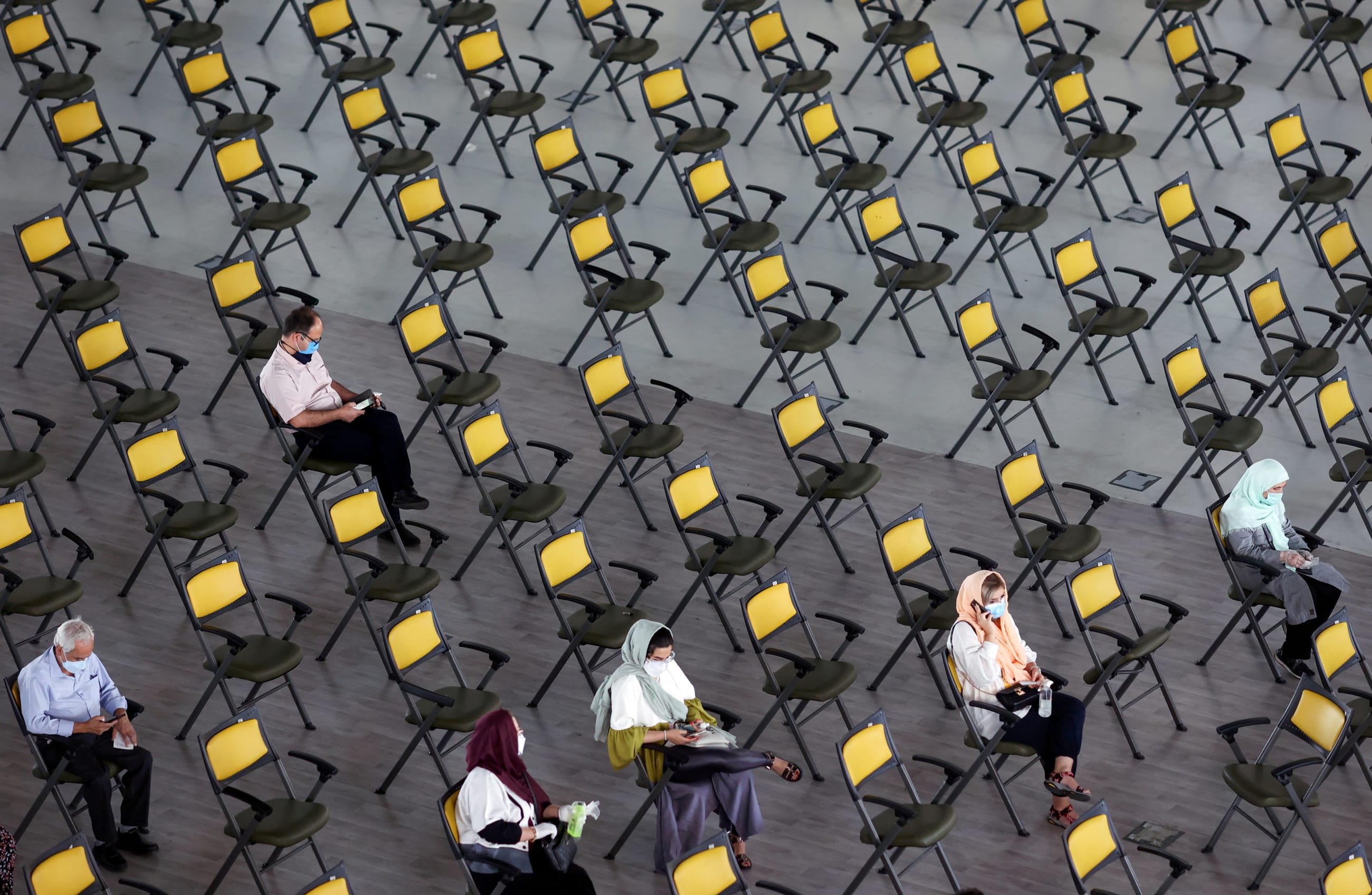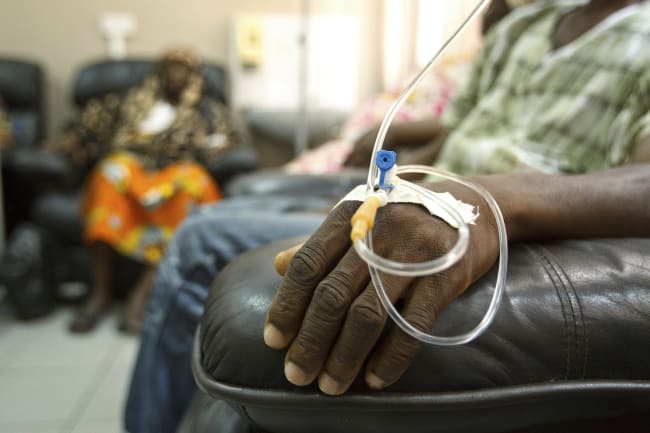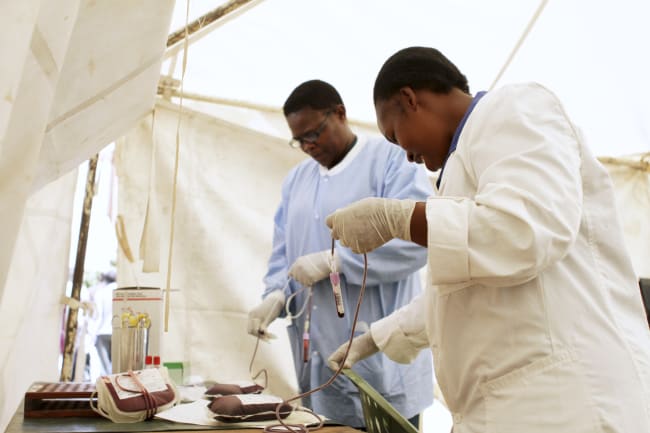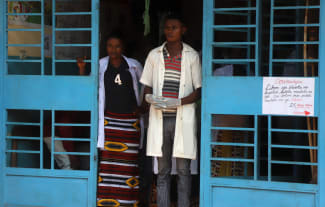When a new pathogen with pandemic potential emerges in a low- or middle-income country (LMIC), sharing that pathogen's genetic sequencing data (GSD) with the world allows others, predominantly based in high-income countries (HICs), to rapidly develop vaccines against the rising threat. Should vaccine manufacturers be mandated to share some of the resulting doses with LMICs? Or should manufacturers merely be "urged" to make their vaccines available to LMICs, either as donations or at an affordable price?
These questions surrounding pathogen access and benefit sharing (PABS) epitomize the current impasse in negotiations over a pandemic agreement. Wealthy vaccine-producing countries, such as the United Kingdom (UK), insist that their vaccine manufacturers not be required to donate doses. The UK government states that it will support the agreement only if it is "firmly in the UK national interest and respects national sovereignty." However, many LMICs insist that vaccine manufacturers be required to share a portion of their production.
For example, the Africa Group has called for at least 20% of real-time production of vaccines—10% free of charge and 10% at an affordable price—to be donated to the World Health Organization (WHO), which would then distribute globally according to need.
This stark divide between HICs and LMICs on PABS might seem unbridgeable, but a third way forward is possible. Pandemic accord negotiators could reward vaccine makers that participate in a voluntary PABS Program that commits the companies to provide a portion of all real-time production of their vaccines to LMICs at low or no cost—in exchange for the promise of enhanced access to pathogen data and opportunities to accelerate vaccine testing by collaborating with researchers in the countries where the pathogen first emerged. Vaccine manufacturers that participate would benefit themselves and their home countries by being able to bring their vaccines to market more quickly.
The Africa Group has called for at least 20% of real-time production of vaccines to be donated to the WHO
From an economics point of view, the key issue is whether the information and opportunities that firms need to rapidly develop a pandemic vaccine ought to be public goods, accessible to any vaccine maker with no strings attached, or club goods, accessible only to those who have chosen to join the "club" of vaccine makers that share doses with LMICs.
In his masterpiece that pioneered the economic theory of public goods, The Logic of Collective Action: Public Goods and the Theory of Groups, Mancur Olson also introduced the idea that clubs can help overcome public-good problems (for more discussion of public goods and clubs, including in global health, see the book Global Collective Action by Todd Sandler).
Whereas a public good will typically be underprovided, ultimately harming everyone, clubs can encourage investment and create new opportunities for mutual benefit by making a contribution to the club a precondition for enjoying the club good. In this context, the club is the PABS Program, the cost of membership for vaccine makers is a commitment to share a portion of their future real-time production with LMICs at low to no cost, and the club good is the ability to get their vaccines to market more quickly.
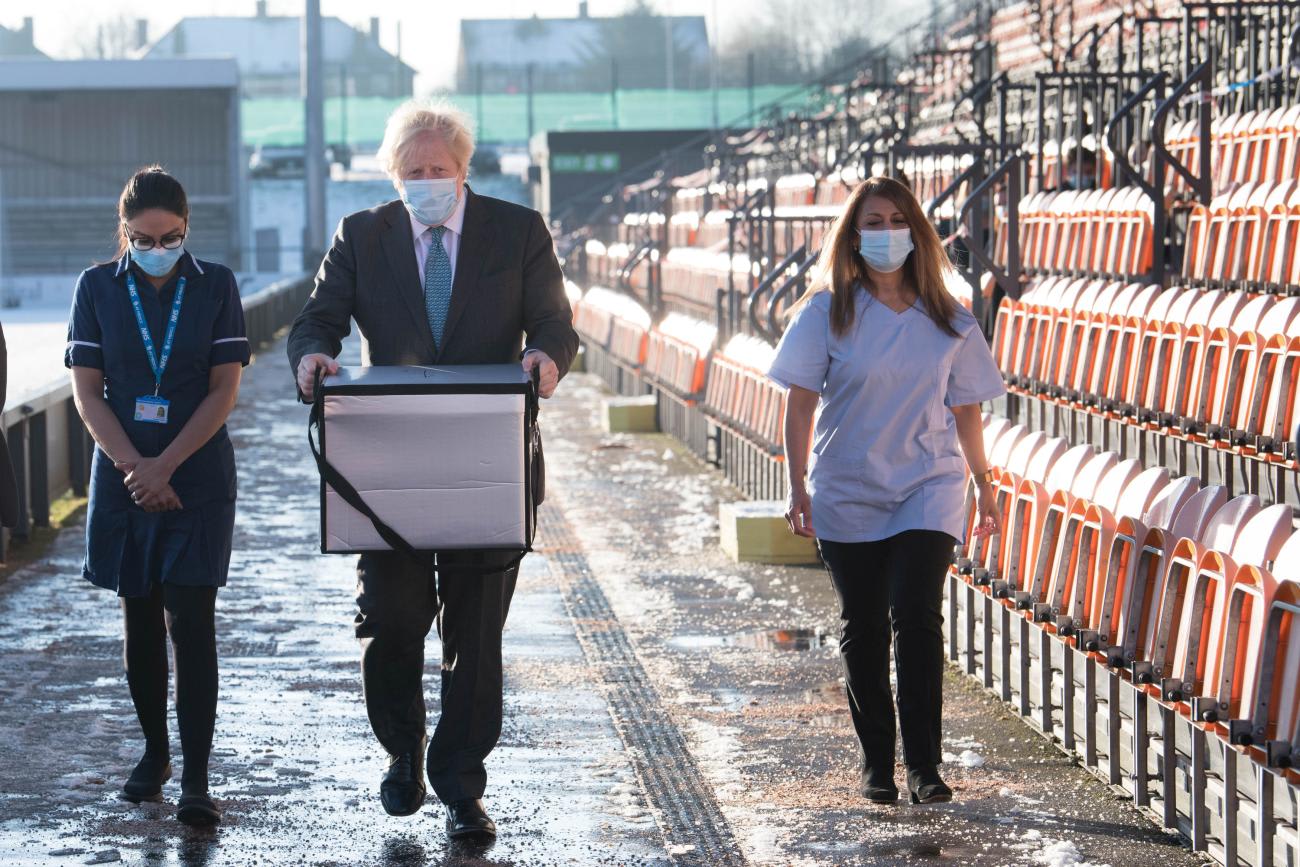
Breaking the Impasse by Rewarding Those Who Share
It is easy to understand why a wealthy vaccine-producing country such as the UK would oppose any agreement that forces its vaccine manufacturers to give a portion of their earliest doses to other countries. During a pandemic, the UK has a compelling national interest to protect its citizens as quickly and completely as possible, and any early dose given to others is a dose that cannot go to a British citizen.
But what if committing to share a portion of future real-time production with LMICs allowed British vaccine makers to produce a marketable vaccine months earlier than otherwise? The UK government would then have a compelling incentive to encourage its vaccine manufacturers to make that commitment in order to shorten the time its people are unvaccinated and unprotected.
How would participating in the PABS Program allow vaccine makers to produce marketable vaccines more quickly? Given advances in vaccine technology, small doses of a candidate vaccine can be produced within just a few days once pathogen GSD becomes available. But establishing the effectiveness of a candidate vaccine during an emerging pandemic is more difficult and requires cooperation from the countries that are experiencing the earliest outbreaks.
LMICs face a higher "spark risk," meaning that the likelihood of a pathogen's leaping from animals to humans and sparking a pandemic is higher
These frontline countries are usually LMICs that face a higher "spark risk," meaning that the likelihood of a pathogen's leaping from animals to humans and sparking a pandemic is higher. Such collaborations cannot be easily improvised during an unfolding health emergency. Agreements and systems should already be in place and, most important, there should be a sense of trust among the parties involved. The PABS Program could establish all three before a pandemic begins.
To be more specific, suppose that the program, administered by the WHO, coordinated with participating vaccine manufacturers to conduct clinical trials to confirm the safety and efficacy of their candidate vaccines in the earliest hotspots, including the LMIC that originally shared GSD. Once a vaccine is demonstrably safe and efficacious, the program could then surge its delivery to these hotspots and collect real-world effectiveness data. Armed with the resulting safety, efficacy, and effectiveness data, firms could then sell future batches of their proven vaccines to HICs at higher prices—and before any competitor who is not a member of the program.
Vaccine Manufacturers Should Share Some of Their Bounty
A bedrock principle of global health collaboration is that GSD and other pathogen data should be available to anyone who could use this information to save lives. In particular, every vaccine manufacturer should be able to access the genetic sequence of a pathogen with pandemic potential as soon as that data is collected. But with rights come responsibilities, and vaccine manufacturers that leverage GSD generated in LMICs to produce profitable vaccines have a responsibility to share some of this bounty with those that made their vaccines possible in the first place.
The PABS Program proposal gives vaccine manufacturers a choice. If they choose to share doses with LMICs by joining the program, they get immediate access to GSD and all the other benefits (such as accelerated clinical trials) that come from collaborating with LMICs to produce marketable vaccines as quickly as possible. Companies that choose not to join remain free to develop vaccines, just without the benefits of collaboration. No "lost national sovereignty" is associated with this proposal and, indeed, vaccine makers and vaccine-producing nations have much to gain.
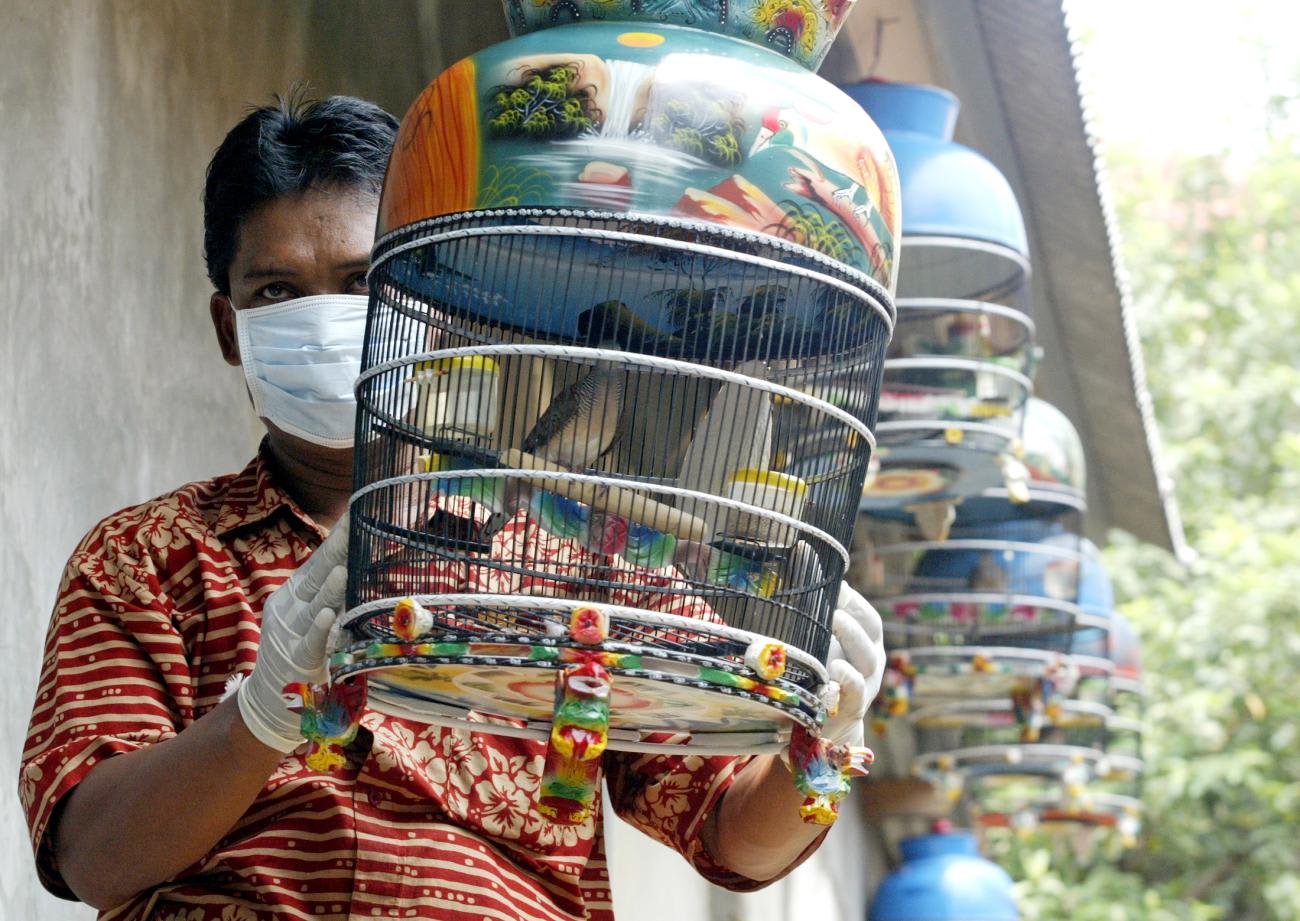
Aligning Incentives to Create a "Win-Win" Proposition
From a game-theory point of view, an advantage of the proposal is that everyone has an incentive to fulfill their obligations to the PABS Program as long as others are fulfilling theirs. (In the language of game theory, everyone fulfilling their obligations is known as a Nash equilibrium.) When a pandemic-potential pathogen emerges in a frontline LMIC, that country's leadership has an incentive to share GSD and cooperate in conducting clinical trials because the program's design ensures that they will receive some of the earliest doses produced.
Vaccine manufacturers (and their home countries) similarly have an incentive to commit to share some of their future real-time production with the program because doing so allows them to establish vaccine effectiveness and get their vaccines onto the market more quickly.
By contrast, if Pandemic Agreement negotiations remain stalled and the status quo remains, frontline LMICs will have a potentially overwhelming incentive to not share information on emerging pathogens, just as Indonesia refused to share GSD in 2007 during the H5N1 outbreak. The incentive will be, instead, to negotiate bilaterally and only cooperate with a vaccine manufacturer that promises to send some of its earliest doses to the frontline LMIC. This scenario would be a disaster because all vaccine production would be delayed while the frontline LMIC negotiates and other LMICs at most need could be left with nothing.
Fortunately, by embracing the idea that vaccine manufacturers' right to access GSD comes with a responsibility to share with LMICs, Pandemic Agreement negotiators can construct a newly collaborative and strategically stable system to develop vaccines and get doses where they are most needed as rapidly as humanly possible. LMICs will benefit from this new system, but so will vaccine manufacturers and vaccine-producing nations because they will be able to produce the immunizations more quickly and have doses earlier that they can sell to HICs at a high price.
Everyone's incentives will be aligned to create a truly win-win outcome.

